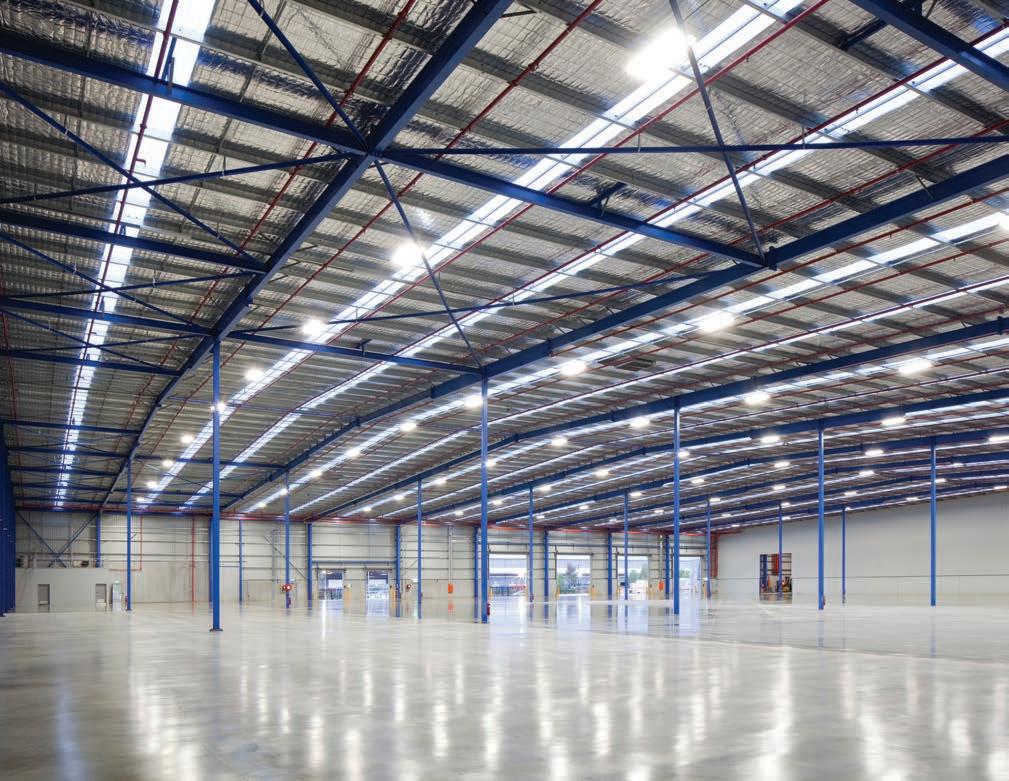
2 minute read
SUSTAINABLE TDF
Tyrecycle’s new Erskine Park facility will process rubber waste into high-quality tyre-derived fuel.
Building a sustainable TDF market
WITH A STRONG GLOBAL MARKET FORECAST FOR TYRE-DERIVED FUEL, AUSTRALIA’S LARGEST TYRE RECYCLER, TYRECYCLE, IS EXPANDING ITS OPERATIONS ACROSS AUSTRALIA, WITH A STRONG COMMITMENT TO INVESTMENT IN NEW PLANTS AND TECHNOLOGY.
The recently released Global Tyre Derived Fuel (TDF) Market Report 2021: Industry Analysis 2017-2020 & Growth Trends and Market Forecast 2021-2025, highlights that the shift to TDF is increasing at speed, with cement and paper and pulp industries taking the lead.
The research report estimates the global TDF market will reach a valuation of US$430.3 million by the end of 2025.
Jim Fairweather, Tyrecycle CEO, says while the global market forecast is encouraging, Australia’s tyre recycling industry needs to embrace innovation and raise awareness if it is to expand into a globally sustainable business.
“The global research report solidifies the need to build confidence in the sector with a genuine commitment to embracing new opportunities,” he says.
As end-use industries regain momentum in the post-COVID-19 economy, analysts anticipate that will further stoke the usage of TDF, often used as a supplemental fuel at cement and paper and pulp facilities, providing improved boiler efficiency, a reduction in carbon emissions and lower fuel costs.
“It’s the kind of projections the sector needs to back itself. At Tyrecycle, we are gearing up for significant expansion in our production capacity and capability for TDF,” Fairweather says.
Tyrecycle, listed as a leading global player in the TDF market in the research report, is investing more than $40 million to expand its operations across Australia to cater to growing national and international demand.
The company has a new plant set to open at Erskine Park in Sydney in coming months, with a second new plant scheduled to be operational in Western Australia later this year.
It is also bolstering its South Australian operations, further strengthening the company’s capabilities across its national footprint ahead of the Federal Government’s ban on the export of whole-baled tyres.
“It is a transformative change that offers the tyre recycling sector a significant opportunity to raise the stakes in achieving better and more sustainable environmental outcomes,” Fairweather says.
“However, while regulation will go some way towards addressing the important role that waste tyres can play in helping to progress a circular economy, further incentives for tyre recyclers to invest in higher end product development will also be important.”
In Australia each year, approximately 465 kilotonnes of tyres reach their end-of-life. Tyrecycle, as the nation’s largest recycler, having been in the market for close to 30 years, accounts for only 9 per cent of the collection, processing, and remanufacturing of those waste tyres.
“That paints a clear picture of just how much more work there is to be done in further highlighting the potential of the industry,” Fairweather says.
The National Circular Economy Roadmap highlights that Australia currently lacks the necessary market demand for recycled products.
“Expanding meaningful partnerships, both locally and globally, will be key to supporting competitiveness and scale for Australian manufacturers, as we seek to progress improved access to export markets and supply chains,” Fairweather says.
“We all need to be smarter about how we use the earth’s limited resources and that requires government, industry and consumers to accept responsibility for the role they each have to play in driving sustainable change.”








